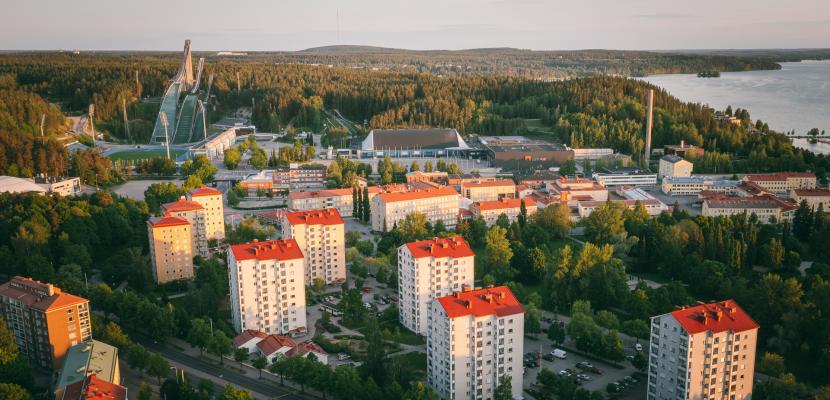
Utilization of food waste as food aid

About this good practice
In Lahti city strategy, the vision until 2030 is: Lahti – enduring change. The pioneering role of Finland’s leading environmental city brings well-being to residents and success to companies.
Lahti aims to be carbon neutral already in 2025 and waste-free city by 2050. One way of implementing the strategy is through the Circular economy roadmap, which describes actions to reduce food waste through strengthening co-operation between actors around food: NGOs as well as public and private sectors.
During the recent years, the city has funded operation development of NGOs working among food aid. Due to changes in Finnish legislation, the current responsible regional authority of food aid is Wellbeing services county of Päijät-Häme, funded by the state.
In 2021, more than 57 000 tons of food waste was generated in grocery stores - most of the waste is bread.
In Lahti, NGOs have developed an organized a way to deliver food aid to people in need. For example NGO called Operation Open Door (OOD) is one of the local food aid actors. The following numbers describe their operations in reducing food waste and providing food aid.
OOD makes a contract f.ex. with grocery stores to receive donations of edible food waste. They receive about 85 tons of edible food waste per month.
The NGO collects and stores donations from different companies in cold storage and passes them to food distributors. These distributors can then deliver about 17 000 food packages per month as food aid.
Expert opinion
Resources needed
OOD runs with 350 volunteers, 3 delivery vans, a cold storage, 20 big donors, 70 co-operating delivery organizations and 1 paid worker.
The Finnish state funds the food aid actors in Lahti Region this year. The need for funding is emerging and the funding covers only part of the operation costs.
Evidence of success
Approximately 17 000 food packages are provided monthly to individuals facing food insecurity, equating to roughly 85 000 kilograms of food delivered to those in need each month.
This way it is possible to repurpose edible food waste for consumption, whereas it might have otherwise been utilized as an energy source or raw material for biogas production.
Potential for learning or transfer
This GP is highly replicable and contributes significantly to the initiative aimed at preventing food loss and waste throughout the EU. “The EU countries are committed to meeting the target to halve per capita food waste at the retail and consumer level by 2030 and reduce food losses along the food production and supply chains.”
Public bodies play a vital role in fostering food waste prevention. Collaborating with NGOs and local actors, surplus food is redistributed for free to individuals with low incomes. This addresses not only environmental concerns but also social and economic aspects of circular economy.
- Food waste alone generates 8-10% of global greenhouse gas emissions - food waste reduction protects the environment and the climate
- Social employment is considered and developed further
- Companies reduce food waste and support vulnerable groups
- Companies lower waste cost by reducing waste
- People in need receive support
Further information
Good practice owner
You can contact the good practice owner below for more detailed information.
